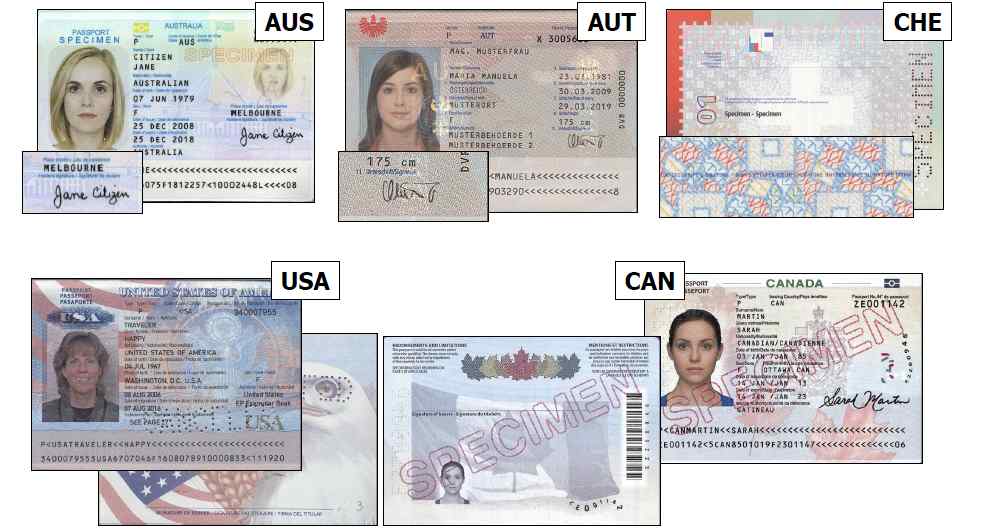Identity verification is a process used to confirm the identity of an individual. This is often done to protect the privacy of the individual or to prevent fraud. In the context of GCMS requests, identity verification is used to ensure that the information being requested is being requested by the person to whom it relates.
There are many different ways to verify identity. Some common methods include:
- Matching personal information: This could include comparing the name, date of birth, and other personal information on the identification document with the information on the request.
- Checking identification documents: This could include a passport, driver’s license, or other government-issued ID.
The specific methods used for identity verification will vary depending on the circumstances. For example, a more rigorous verification process may be required for sensitive information.
Identity verification is an important part of protecting the privacy of individuals and preventing fraud.
Table of contents
- What is identity verification for GCMS requests?
- Examples of identity documents
- Requests for identity documents
- Authenticity of the documents
- Translation of identity documents
- Matching the documents to the applicant
- Requesting the personal information of a minor
- Effectiveness of the identity verification procedures
What is identity verification for GCMS requests?
The purpose of identity verification is to ensure that the privacy of individuals is protected when their personal information is requested through GCMS notes. The objective is to confirm the identity so that privacy will not be breached. Failure to properly verify the identity of an applicant could lead to the release of personal information to an unauthorized individual or organization, which would constitute a privacy breach. By verifying the identity, government institutions like IRCC, CBSA and CSIS can be confident that the information is being requested by the person to whom it relates.
There are many approaches to identity verification. The requirements for identity verification vary depending on the type of information being requested. For example when requesting personal information a copy of the passport or birth certificate may be required. Some government institutions require a high degree of certainty with regards to the identity of the individual because of the sensitivity of the information being shared. Other government institutions may take a risk-based approach, recognizing that time and resources required for absolute certainty of identity may not be necessary, given that identity may already have been established due to previous dealings with the government institution. For example, responsive records that include bank account details, medical records, or sensitive law enforcement documents are of more significance than the business title and email address of an individual.
Examples of identity documents

Each government institution is responsible for establishing its own procedures to validate the identity. Some examples of possible acceptable identification documents include the following.
- Passports
- Driver’s licences or enhanced driver’s licences
- Provincial or territorial photo cards for non-drivers (excluding health cards)
- Citizenship cards or national identity cards
- Permanent resident cards
- Nexus cards
- Record of landing forms/confirmation of permanent residence (IMM 5292)
- Immigration documents issued to foreign nationals present in Canada (e.g., work permit, study permit, refugee approved status)
- Birth certificates
Requests for identity documents
As part of the GCMS process additional information may be requested by institutions, so applicants should be aware and ready to supply these when requested. Your request will not be processed by the government institution until the applicant’s identity can be confirmed. If the applicant does not reply by the set deadline, their request is considered abandoned, and the request is closed. Depending on the government institution involved the time limit to provide the requested information can be from 7 days to 30 days.
Below are some examples of such requests from IRCC;
- In order for us to confirm we are providing the correct records, we require that you provide a copy of the passport bio page from the applicant. Please note that your request will remain on hold until we receive the requested information from you.
- The consent provided is not valid because: The client’s signature on the consent is different from the one we have in our records. Therefore, a new consent containing the handwritten signature of your client is required in order for us to process your request.
- In order for us to confirm the signature on the consent provided, we require that you provide a signed government issued photo identification from the person for whom the information is being requested.
- The consent provided is not valid because: It is illegible. Therefore, a new consent containing the handwritten signature of your client is required in order for us to process your request.
- The consent provided is not valid because: It is signed electronically. Therefore, a new consent containing the handwritten signature of your client is required in order for us to process your request.
- The consent provided is not valid because: It appears to have been tampered with. Therefore, a new consent containing the handwritten signature of your client is required in order for us to process your request.
- We noticed discrepancies between the name of the applicant on the request form, the consent form and the name in our records according to the file number provided. In order for us to do an accurate search of our records, we require that you confirm the name of the person for whom the information is being requested and provide us with any other names/aliases this person may use as well as a proof of name change.
- We noticed discrepancies between the date of birth of the applicant on the request form, the consent form and the date of birth in our records according to the file number and information provided. In order for us to do an accurate search of our records, we require that you confirm the date of birth of the person for whom the information is being requested and provide us with an official signed piece of their photo identification that includes that date of birth.
- Your request is being placed on hold for the following reason(s): The file number does not belong to the applicant.
- In order for us to confirm that the signatures provided on the consent are those of the minor’s parents, we require that you provide signed government issued photo identification from both parents along with a copy of the minor’s birth certificate in English or French. If the birth certificate is in another language, please also provide a certified translation. In the event where the consent was not signed by the minor’s biological parents, we require proof that the designated individual(s) is the legal guardian of the minor. Please provide a Canadian issued custody agreement. If the custody agreement is not a Canadian court document, the document must be notarized in Canada.
Authenticity of the documents
Verifying the identity includes confirming the authenticity of the documents presented to ensure they are not counterfeit. Procedures to determine the authenticity of a document, include confirming that the document:
- Does not appear to have been tampered with or changed
- Does not contain grammatical and spelling mistakes
- Is consistent with the information contained in other documents provided
- Is legible and not handwritten
Government institutions have procedures for examining the security features and markers to determine if the document provided is authentic, valid and current. Some institutions may have document authenticity subject matter experts, or may reach out to security experts, and others may have technological solutions or may use commercial authenticity services.
If the document is not clear, or the markings cannot be observed, institutions may ask the applicant for a notarized copy that is clearly legible.
Translation of identity documents
If the identity documents are in neither English, nor French, the institution may request a translated notarized copy, along with a copy of the document in the other language. Canadian embassies provide notarial service in some countries.
Your request will not be processed by the government institution until the applicant’s identity can be confirmed. If the applicant does not reply by the set deadline, their request is considered abandoned, and the request is closed.
Matching the documents to the applicant
Once the authenticity of the documents has been confirmed, institutions check that the information in the documents is consistent with the information contained in the request and other documents provided.
For example, both the Canadian Border Services Agency (CBSA) and Immigration, Refugee and Citizenship Canada (IRCC) use a consistent Universal Client Identification (UCI) number which is assigned when their file was opened in the Global Case Management Software (GCMS). This unique identifier, and the data it refers to in GCMS, may be used to corroborate the identity of an applicant with another piece of identity that contains the name, address, and birthdate of the applicant.
If the institution has an email address on file for the individual, separate from what is contained in the request, an email could be sent to the individual notifying them that a request has been made for their information. The individual is advised to contact the institution immediately if this is an error or not expected.
Where photo identification is included, the name and appearance of the applicant must match the individual being identified.
If an institution is unable to verify the identity of the applicant, either because there is a mismatch between the individual and the documents or insufficient information is provided, the institution may ask for further information to verify identity. Questions related to the content of the file, such as the nature of the grant or visa applied for, can help confirm the identity of the individual.
Requesting the personal information of a minor

If the request is for a minor, the institution must verify the identity of the requesting parent or guardian. If the institution has email addresses on file for the requesting parent or guardian, as well as any non-requesting parent(s) or guardian(s), depending on the nature of the information, institutions may consider notifying all parties that a request has been made for the minor’s information. Concerned parties are advised to contact the institution immediately if the request was made in error or not expected. In addition to validating the identity of the applicant, institutions also must confirm the applicant has the legal authority to make such a request on behalf of the minor. To obtain a minor child’s file review the consent form requirements here.
Effectiveness of the identity verification procedures
Government institutions periodically review their procedures to confirm whether identity verification procedures remain appropriate to the types of requests they are receiving and the information they are disclosing. For example, it is possible in the future that it may become mandatory to provide identity verification documents to obtain GCMS notes.
Issues with the consent form is the #1 reason for avoidable delays. It is not mandatory but providing a copy of the passport biographical pages (i.e. photo & signature pages) of all applicants will assist the government institution in processing your request; it can be submitted along with the consent form.

